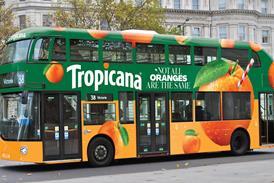With less than a month to go before the government raises the age for buying tobacco, Gaelle Walker finds out how retailers are preparing
It's the final countdown. Retailers now have less than one month, or 24 days to be exact, before the age at which teenagers can purchase tobacco-based products is raised from 16 to 18.
The decision, which was announced by the government at the beginning of the year, has prompted sleepless nights for retailers across the country, who are fearing an enforcement nightmare of Elm Street proportions.
And it's easy to see why. On September 30, 16- and 17-year-old teenagers will be perfectly within their rights to purchase cigarettes, but the very next day, Monday, October 1, retailers will be duty bound to refuse the sale, or face steep fines of up to £2,500.
However, the situation is made all the more troubling by the fact that the overriding majority of consumers are still completely unaware of the coming change.
"The worry is that disgruntled minors will assume that it's the shopkeeper who has simply made up a new rule, and take it out on them," warns Tony Ducker of Fenpark Stores in Stoke on Trent.
Suddenly, the amusing playground adage, "a pinch and a punch for the first of the month" isn't such a laughing matter.
So why the gaping hole in public awareness? Well, the government decided that it would be better to delay communicating the change to consumers until just over a month before it is implemented, so as to avoid "confusion" with the recently introduced law against smoking in public places.
This decision has sparked fury among store owners and retail campaign groups alike, who feel that their safety is being put on the line as a result of the late publicity.
"The government desperately needs to step up its communications efforts to ensure that consumers are aware of this major change in their purchasing rights," says Shane Brennan, public affairs manager at the Association of Convenience Stores, which has been lobbying the government to step up its communications effort these past few months.
"It won't be the government or members of the council who refuse sales to abusive teenagers, it will be the shopkeepers and their staff who face the backlash," adds Barry Wallis, retail development controller for Spar UK, which has committed to helping its retailers by sending out its 'To Sell or Not To Sell' information packs for staff, and large posters and point-of-sale material to help drive public awareness.
The government has recently supplied retailers with an information pack and is said to be gearing up for a major consumer awareness drive in the next few weeks. However, many retailers feel that it is all far too little, too late.
"Teenagers don't tend to read newspapers or watch the news too closely anyway, so I doubt its campaign will have much of an impact," adds Tony.
He also slams the new government posters which have been sent out for retailers to display in their stores to draw attention to the age change. Tony believes they won't be much help. "The problem is that they look hardly any different from the old ones which highlighted the legal age for smoking as being 16, so I doubt that many consumers will pay attention," he points put.
With so little time left to communicate the change, many retailers feel that it is now up to them to fill in the communications vacuum.
Brennan agrees. "Forewarning is vital, and retailers must start making their customers aware of the change in the law before it's too late, or face the consequences."
The ACS has circulated a wad of advice for retailers on how to prepare for October 1, and how to deal with any conflicts that arise afterwards.
It is advising retailers to talk to their tobacco-purchasing customers, and to tell all 16- and 17-year-old teenagers of the forthcoming change each time they purchase tobacco-based products.
Many retailers are also considering making their own posters to better advertise the change.
Educating staff in how to deal with refusals is another important part of the preparation process, adds Paul Delves, managing director of Shropshire Nisa retail group Harry Tuffins.
He believes that it is particularly important to support all 16- and 17- year-old members of staff who could feel intimidated by refusing to serve their peers.
Meeta Patel, who owns a small Mace store in the London borough of Bow with husband Paresh, hopes that the close relationship she has forged with many of her local customers will keep trouble at bay.
"Never has knowing your customers been so important," she says. "We have been trading in this store for almost 20 years. We know virtually every person who walks through our doors. We have made a point of talking to our regular teenage customers, and although they are annoyed by the change, they know what to expect," she explains.
As a result, the Patels aren't anticipating much of a problem on October 1, in fact like many other retailers they are preparing for a potential sales boom on September 30, as teens stock up on their smokes before the age bar is raised.
Talk to your customers and advise all teenagers of the age change and date of enforcement
Display the correct signage on your shop counter and in windows clearly to draw attention to the change
Adopt a Challenge 21 policy, or train staff to always ask for proof of age if they are in any doubt about a customer's age
Set up a refusals register to record when you or any member of staff have refused to sell to a young person. This should log the date and time of any incident, the product being purchased, reason for refusal, and a brief description of the customer.
It's the final countdown. Retailers now have less than one month, or 24 days to be exact, before the age at which teenagers can purchase tobacco-based products is raised from 16 to 18.
The decision, which was announced by the government at the beginning of the year, has prompted sleepless nights for retailers across the country, who are fearing an enforcement nightmare of Elm Street proportions.
And it's easy to see why. On September 30, 16- and 17-year-old teenagers will be perfectly within their rights to purchase cigarettes, but the very next day, Monday, October 1, retailers will be duty bound to refuse the sale, or face steep fines of up to £2,500.
However, the situation is made all the more troubling by the fact that the overriding majority of consumers are still completely unaware of the coming change.
"The worry is that disgruntled minors will assume that it's the shopkeeper who has simply made up a new rule, and take it out on them," warns Tony Ducker of Fenpark Stores in Stoke on Trent.
Suddenly, the amusing playground adage, "a pinch and a punch for the first of the month" isn't such a laughing matter.
So why the gaping hole in public awareness? Well, the government decided that it would be better to delay communicating the change to consumers until just over a month before it is implemented, so as to avoid "confusion" with the recently introduced law against smoking in public places.
This decision has sparked fury among store owners and retail campaign groups alike, who feel that their safety is being put on the line as a result of the late publicity.
"The government desperately needs to step up its communications efforts to ensure that consumers are aware of this major change in their purchasing rights," says Shane Brennan, public affairs manager at the Association of Convenience Stores, which has been lobbying the government to step up its communications effort these past few months.
"It won't be the government or members of the council who refuse sales to abusive teenagers, it will be the shopkeepers and their staff who face the backlash," adds Barry Wallis, retail development controller for Spar UK, which has committed to helping its retailers by sending out its 'To Sell or Not To Sell' information packs for staff, and large posters and point-of-sale material to help drive public awareness.
The government has recently supplied retailers with an information pack and is said to be gearing up for a major consumer awareness drive in the next few weeks. However, many retailers feel that it is all far too little, too late.
"Teenagers don't tend to read newspapers or watch the news too closely anyway, so I doubt its campaign will have much of an impact," adds Tony.
He also slams the new government posters which have been sent out for retailers to display in their stores to draw attention to the age change. Tony believes they won't be much help. "The problem is that they look hardly any different from the old ones which highlighted the legal age for smoking as being 16, so I doubt that many consumers will pay attention," he points put.
With so little time left to communicate the change, many retailers feel that it is now up to them to fill in the communications vacuum.
Brennan agrees. "Forewarning is vital, and retailers must start making their customers aware of the change in the law before it's too late, or face the consequences."
The ACS has circulated a wad of advice for retailers on how to prepare for October 1, and how to deal with any conflicts that arise afterwards.
It is advising retailers to talk to their tobacco-purchasing customers, and to tell all 16- and 17-year-old teenagers of the forthcoming change each time they purchase tobacco-based products.
Many retailers are also considering making their own posters to better advertise the change.
Educating staff in how to deal with refusals is another important part of the preparation process, adds Paul Delves, managing director of Shropshire Nisa retail group Harry Tuffins.
He believes that it is particularly important to support all 16- and 17- year-old members of staff who could feel intimidated by refusing to serve their peers.
Meeta Patel, who owns a small Mace store in the London borough of Bow with husband Paresh, hopes that the close relationship she has forged with many of her local customers will keep trouble at bay.
"Never has knowing your customers been so important," she says. "We have been trading in this store for almost 20 years. We know virtually every person who walks through our doors. We have made a point of talking to our regular teenage customers, and although they are annoyed by the change, they know what to expect," she explains.
As a result, the Patels aren't anticipating much of a problem on October 1, in fact like many other retailers they are preparing for a potential sales boom on September 30, as teens stock up on their smokes before the age bar is raised.
Preparation
Talk to your customers and advise all teenagers of the age change and date of enforcement
Display the correct signage on your shop counter and in windows clearly to draw attention to the change
Adopt a Challenge 21 policy, or train staff to always ask for proof of age if they are in any doubt about a customer's age
Set up a refusals register to record when you or any member of staff have refused to sell to a young person. This should log the date and time of any incident, the product being purchased, reason for refusal, and a brief description of the customer.















No comments yet